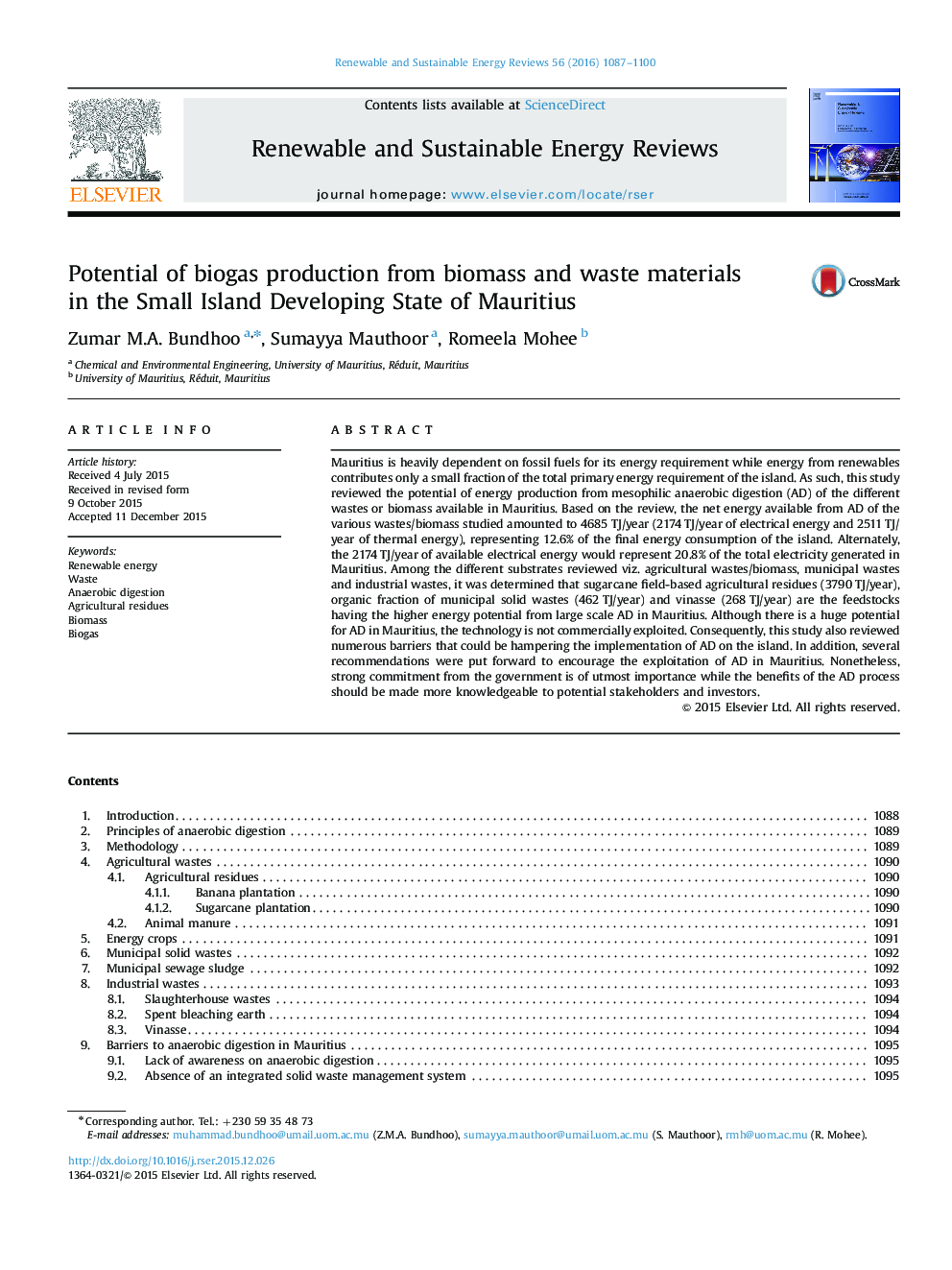| Article ID | Journal | Published Year | Pages | File Type |
|---|---|---|---|---|
| 8115004 | Renewable and Sustainable Energy Reviews | 2016 | 14 Pages |
Abstract
Mauritius is heavily dependent on fossil fuels for its energy requirement while energy from renewables contributes only a small fraction of the total primary energy requirement of the island. As such, this study reviewed the potential of energy production from mesophilic anaerobic digestion (AD) of the different wastes or biomass available in Mauritius. Based on the review, the net energy available from AD of the various wastes/biomass studied amounted to 4685 TJ/year (2174Â TJ/year of electrical energy and 2511Â TJ/year of thermal energy), representing 12.6% of the final energy consumption of the island. Alternately, the 2174Â TJ/year of available electrical energy would represent 20.8% of the total electricity generated in Mauritius. Among the different substrates reviewed viz. agricultural wastes/biomass, municipal wastes and industrial wastes, it was determined that sugarcane field-based agricultural residues (3790Â TJ/year), organic fraction of municipal solid wastes (462Â TJ/year) and vinasse (268Â TJ/year) are the feedstocks having the higher energy potential from large scale AD in Mauritius. Although there is a huge potential for AD in Mauritius, the technology is not commercially exploited. Consequently, this study also reviewed numerous barriers that could be hampering the implementation of AD on the island. In addition, several recommendations were put forward to encourage the exploitation of AD in Mauritius. Nonetheless, strong commitment from the government is of utmost importance while the benefits of the AD process should be made more knowledgeable to potential stakeholders and investors.
Related Topics
Physical Sciences and Engineering
Energy
Renewable Energy, Sustainability and the Environment
Authors
Zumar M.A. Bundhoo, Sumayya Mauthoor, Romeela Mohee,
